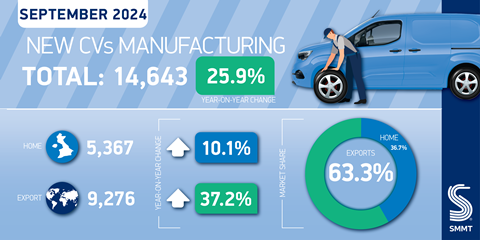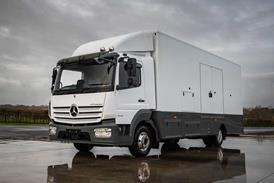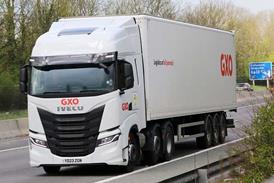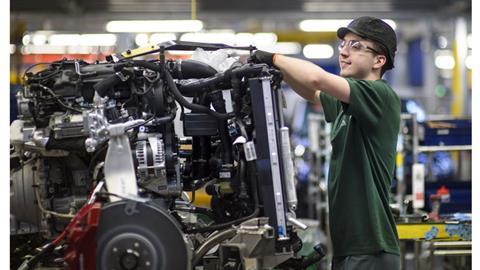Commercial vehicle (CV) manufacturing output grew by more than a quarter in September with 14,643 vans, buses, trucks, coaches and taxis rolling off the production lines of UK factories, according to the latest research from the Society of Motor Manufacturers and Traders.
This surge follows a decline in the traditional low volume ‘summer shutdown’ month of August.
Exports continued to dominate output, accounting for 63.3% of everything made in September, as volumes rose by 37.2% to a total of 9,276 units.
In line with the long-term trend, the EU took the bulk of shipments (98.7%), which SMMT said emphasised the need for smooth trade across the Channel.
Production for UK buyers also rose, by 10.1% to 5,367 units.
In the year to date, UK commercial vehicle plants have produced 93,447 units, a rise of 8.5% on 2023 and the best first nine months since 2008, after supply issues that blighted the second quarter dissipated in Q3.
Exports have driven overall growth, up 15.1%, more than offsetting a -2.5% decline in output for the domestic market.

Mike Hawes, SMMT chief executive, said: “It’s great to see UK plants ramp up CV production after the traditional summer shutdowns.
“Given it is strong demand from EU markets that drives our output, we must look at ways of improving our relationship with our closest trading partner and, indeed, other global markets.”
The news comes as fresh SMMT trade data analysis details how the automotive sector remains the UK’s largest exporter of manufactured products, increasing its share of all goods exports to 13.9% in the first half of this year.
After a record 2023, in the 12 months to June total trade in the sector was worth £114bn, including £46.8bn in exports and £67.2bn in imports, which SMMT said demonstrates the “massive importance” of UK Automotive to economic growth and trade.

Hawes warned that government measures to help the sector, announced in the Autumn Budget last week, did not go far enough.
He praised government action to address the deficit while investing for future growth and its commitment of £2bn of automotive transformation funding as part of the government’s modern industrial strategy.
However, he warned: “Delivering that strategy depends on the UK being globally competitive. Additional National Insurance contributions will put massive pressure on the automotive supply chain which is predominantly SMEs.
“Next year’s spending review must find resources to fund measures that alleviate the strain on these companies and help them transition to an electrified future.
He also welcomed the extension of the Plug-in Van Grant, but said it was not enough to drive the growth in demand needed.
“With the sector challenged to deliver the world’s most ambitious EV transition targets, achievement of those targets is in serious doubt,” he warned. ”There must be an urgent review of the market and regulation, else the cost will soon be felt in reduced UK investment, economic growth and jobs.”




















